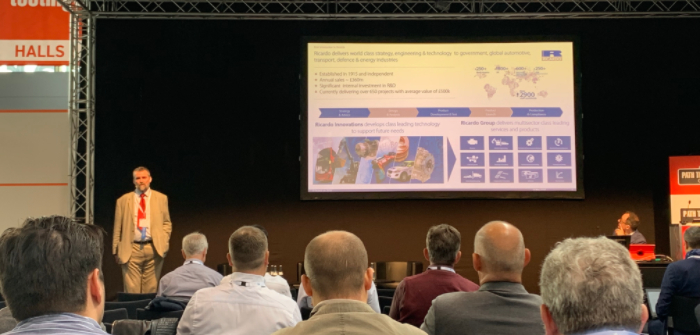On day two of the Path Towards Euro 7 Conference, held at the 2019 Engine Expo + The Powertrain Technology Show in Stuttgart, Andrew Atkins, chief technology engineer at Ricardo, has slammed the automotive industry and claimed that it needs a more lifecycle-based approach to improving the air pollution from liquid fuel powertrains.
The moderation of the impact of transport has mainly been driven via tailpipe emissions measurement and as a result has led to a push for the end of powertrain systems that feature a tailpipe, but Atkins believes that a lifecycle approach is important. “There is obviously scrutiny around tailpipe emissions, but we need to look at the supply chain. We can’t have ten-year-olds dying digging up cobalt.”
While regulations continue to penalize tailpipe emissions, Atkins believes that the target for OEMs should be to focus on a more rounded development picture. “We need to decarbonize the fuel; we need to make highly efficient engines that have less effect on people’s health with the pollutants, both while in use and in the supply chain.
“Resources are becoming scarcer and scarcer, and one of those key resources is energy in the correct form for the application that we’re looking for,” added Atkins. “Health, economic well-being and environmental sustainability need to be balanced during development. All the technologies that we’re now looking at are being looked at with this balance of requirement.”


